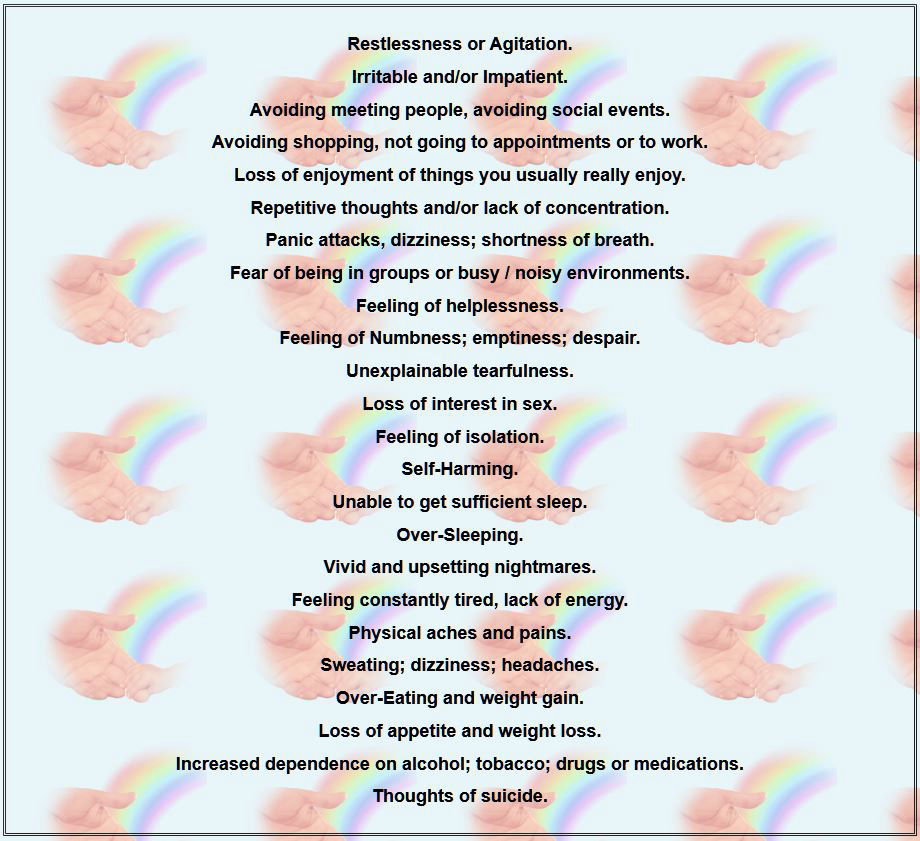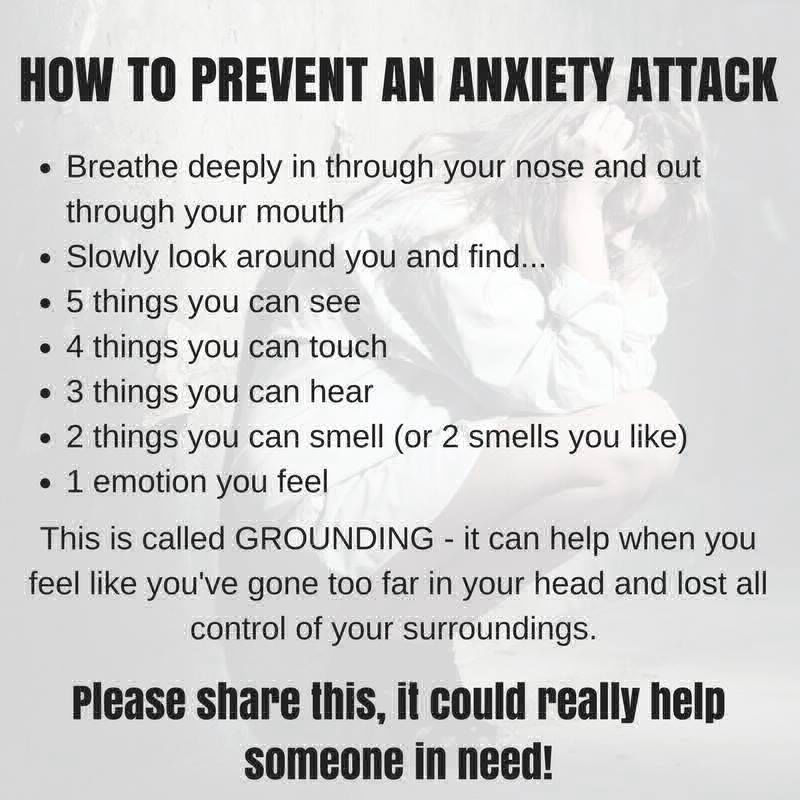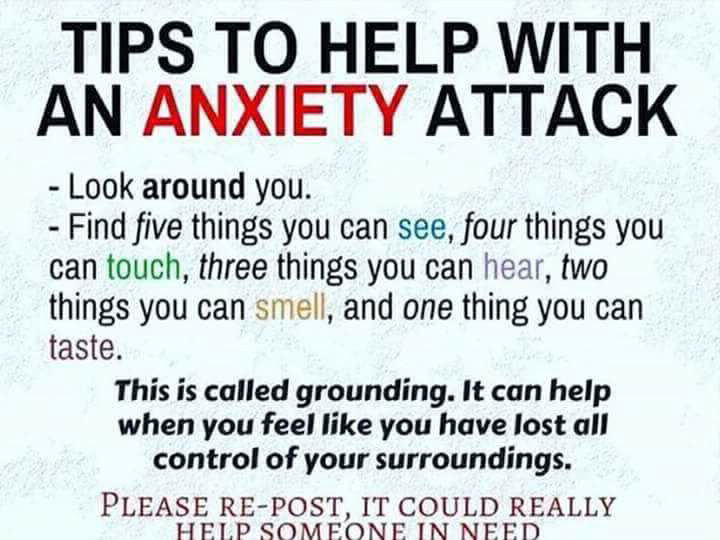If you work in a constant stressful environment, the stress can accumulate, build up, and from personal experience I know it can do this without you even knowing. I worked in the Ambulance Services for many years, stress was part and parcel of the job, seeing the pain and loss, not just with the patient but the relatives too, and having to sometimes deal with things that made the average gory horror movie seem mild. Add to this a history of long term bullying whilst at school and it all totteed up !

Understanding the build up of stress.
Think of a tap that drips into a kitchen bowl, over time the water level rises.
On a hot summer day (a good day) some of this water evaporates and lowers the water level.
On a cold winter day (a bad day) the tap drips a little faster, increasing the water level.
This could go on and be managable for many years, rising during the winter, lowering during the summer, but one day the bowl will fill to the very top, and then with a final drip it overflows.
Stress can build up in exactly the same way, we think it has gone and that we are managing it and its no longer noticible, yet at any time we can suddenly reach our coping level and our emotions overflow.
This maybe the first time we notice that something is wrong!
Stress can affect people in many ways, and in ways that can be unique to them.
It can create fears, fears that you know are irrational, yet still strong enough to prevent you from doing everyday things. Fear of people, fear of groups, of places and of environments. Suddenly the every day tasks that you have done for many years become too much to handle, going shopping, going to a pub, going to a party, visiting friends, appointments, work. All which can cause isolation.
It can affect sleep, making it difficult to get to sleep, create restlessness, create upsetting dreams which lead to broken sleep. It can change sleep patterns around making you stay awake at night and in need of sleep during the day or even sleeping throughout the day. It can cause constant tiredness which can lead to constant headaches and even migraines.
It can affect your eating, make you eat more or put you off food altogether. It can promote bladder and bowel symptom (IBS) in itself limiting making you dependent on nearby toilets. It can cause severe indigestion, bile, wind, sickness and vomitting.
It can increase smoking or the need to drink, even though these make you feel ill.
It can create fatigue, joint and muscle pains, cramps, which in turn reduce your ability to gain enough exercise, leading to gaining weight and eventually obesity.
It can create panic attacks, shortness of breath, palpitations, numbness, severe sweating, dizziness, fainting, blurred vision.
It can cause fluctuations in emotions, tearfulness, crying for no apparent reasons, loss of emotions and empathy, lowering of affection, short-temper or aggression.
It can cause lack of concentration, easily distracted from task, unable to fully complete tasks, aggitation, impatience and irritability.
Repetitive thoughts and 'stuck dreams', reliving something over and over but only to a certain point and never progessing beyond (Groundhog Day!).
Loss of Libido, loss of interest in sex, or in some cases increased interest to unnatural levels.
Can cause Agorophobia, Claustrophobia, sometimes both at same time.
STRESS IS MUCH MORE POWERFUL THAN WE THINK IT IS !
The way it affected me may be similar to the way it affects you, or you may notice symptoms that are totally different. The causes or triggers too will be individual to each of us.
My 'over-flowing moment' happened on the way to work one morning, when I arrived I could not get out of my car, my hands had frozen to the steering wheel. It was the first real signs that something wasn't quite right and I had a deep feeling, awareness and certain knowledge that I could no longer do the work I was doing and had to leave and go home there and then. (at that time caring for abused children with severe challenging behaviours).
Following on from this, I felt I retreated into myself, isolating myself from friends and family, from events and from tasks. Eveyday tasks were 'put off till tomorrow', then put off again and again. When I attempted (forced myself) to go out I would feel the panic and fear, sweat profusely to a point my clothes would be drenched through, and be unable to breath.
I would see everyone as a threat, any groups standing around (even young children) making the hairs on my neck rise and the shaking and panic begin to set in. I could not stand busy places or noise, sometimes suddenly overwhelmed in the quietest of supermarkets dropping my basket in the aisle and leaving instantly so that I could get away outside and breathe.
Reaching home I had to strip off clothing to try to cool down, it could then take me many hours, sometimes days to calm down and get over the uneasiness, often affecting sleep and appetite. I wanted to be alone, further isolating myself from the outside world, often going a week sometimes more without communicating face to face with others.
The high anxiety levels re-triggered my IBS making it hard to travel any distance without immediate access to a conveinience, it also re-started the intense Migraines which I had been clear of for over 20 years.
I was told by the Psychiatrist from my work's Occupational Health Department that I was actually suffering from Post Traumatic Stress Disorder (PTSD) and that it could take 18 months or more to clear, it is now nearly 10 years since it all started and it is still affecting me, and was a contributing factor to several mini-strokes (TIA's). You never know when its going to be a good day or a bad day.
HOW DO I COPE WITH STRESS AND PTSD
I hate taking medications, and I did not want to start on the Anti-depresants the doctor offered and be zonked out all the time. Instead my 'Coping Mechanism' was to control my environment and keep away from the triggers that caused me stress. I only went shopping during quiet periods, either before the schools emptied or later at night while everyone is eating dinner, avoiding where possible busy and noisy areas or going out at night. Where possible I get my daughter to come shopping with me, having someone beside you gives you some confidence and distracts you from your inner fears.
This is the way I cope, it may not work for you, you need to find your own ways !
Credit to: Behind The Shield
'PTSD is becoming a silent killer among First Responders. This is an issue that has been kept suppressed for so many years, thought of a weakness. It is time we get it out into the open and accept that it is a part of our profession'.
PTSD is not just experienced by Fighting Soldiers.
This video shows how PTSD is and has been for many years been affecting UK Emergency Service workers.
Today the services have counsellors in place to help, but this is a recent thing and has not always been the case, there are many ex UK Emergency Service workers out there like myself who have received no help in coping with the stress and PTSD.
An excellent talk on Anxiety.
Credit to: Olivia Remes TEDxUHasselt
Credit to: Lee Health
Credit to GCFLLearnFree.org
Credit to: watchwellcast
Life can be stressful at the best of times, but sometimes that level of stress increases to such a level we find it hard to cope with, we then become anxious and worry about things so much it begins to effect our normal day to day life. Stress can creep up silently on even the most strongest of us, catching us totally unawares.
Anxiety & Depression can have a tremendous effect on our health; mental health and well-being, triggering other illnesses that can at times even hide the true cause. It can take over our thoughts and become the only thing we are able to think about, causing not just problems for ourselves but also to those close around us.
Below are a few typical signs which may alert you to Anxiety, they are just a guide and not a full list as everyone is affected differently. If you have some or all of these symptoms then get medical help immediately from your Doctor, he can also arrange counselling and outside help from the many agencies who specialise in this field and who will help you find new ways to cope and try to help you reduce the causes and triggers.

Severe anxiety can really feel disturbing,, it can affect your breathing, increase heartbeat, make you feel sick, giddy or lightheaded. It can make you feel like you are drowning, smothered in sound and sensations, causing you to panic.

A similar set of tips
